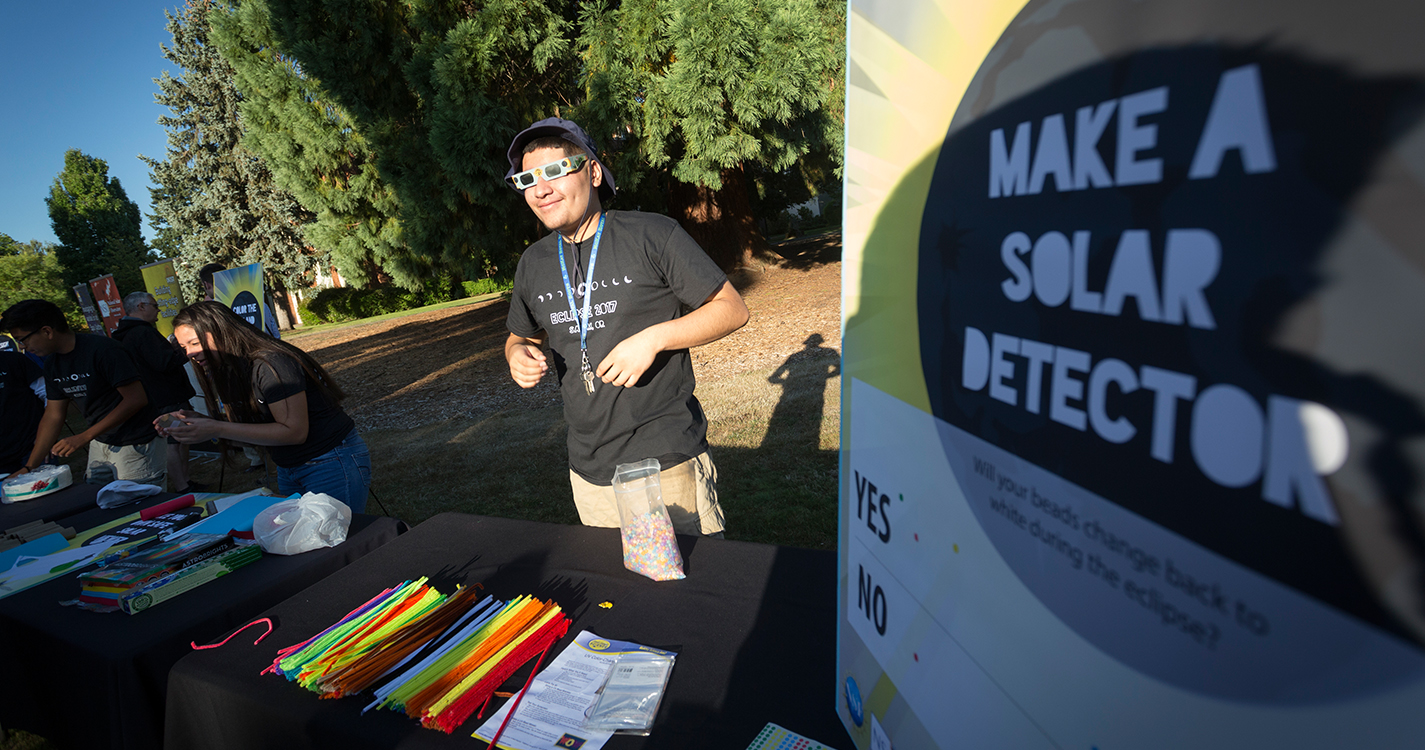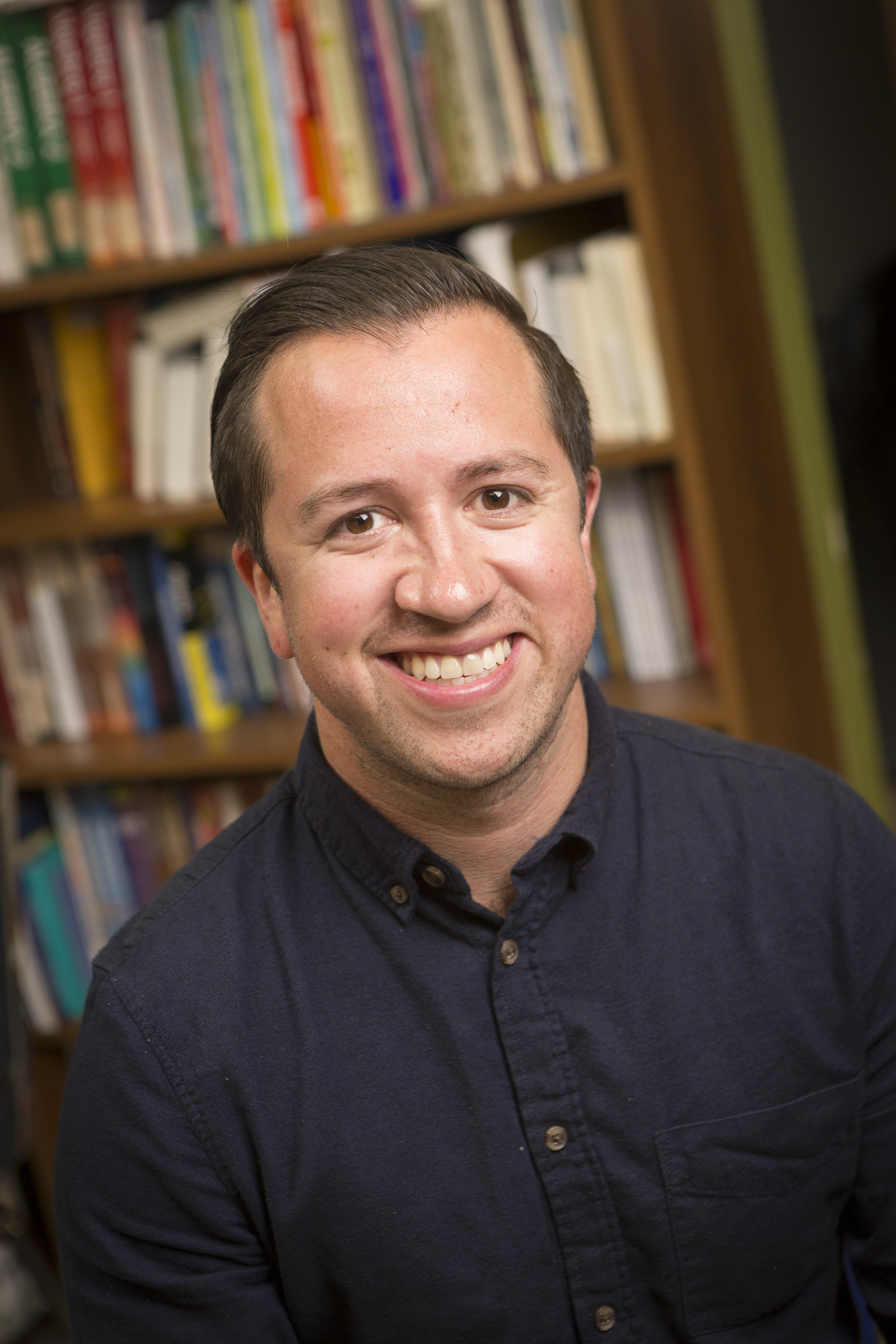The moon and sun may have been the main attractions during the Aug. 21 total eclipse, but Willamette Academy students also played a starring role.
In the hours leading up to the celestial phenomenon, a dozen academy students worked with scientists from the National Solar Observatory to conduct experiments on the north lawn. They also appeared on CNN Español’s television coverage of the eclipse, explaining their work to a reporter. During totality, when the moon completely obscured the sun, two academy students gave a live play-by-play description to Oregon Public Broadcasting, which was also transmitted over NPR.
Their experiences capture what Executive Director Emilio Solano ’09 describes as one of Willamette Academy’s key goals — “to build bridges to places students never dreamed of before, places that seemed outside the realm of possibility.”
This year, 177 8–12th graders from the Salem-Keizer School District are enrolled at the academy, the university’s college access program to help students from historically underrepresented groups gain the skills and confidence to pursue higher education.
Willamette Academy provides academic support, mentoring and access to technology, as well as programs such as summer camps, leadership skills development and college entrance exam preparation. Students are accepted into the academy based on their potential and desire to further themselves and their families through higher education. In addition, they must meet at least one of four qualifying factors: being low income, students of color, a recent immigrant or first-generation college student.
Promising potential
Since Solano took up his role in September 2016, he’s been busy “listening and learning about” how to help the academy and its students live up to their potential.
He’s met with academy students and their families, school principals and counselors, and Willamette community members and donors involved with the program. He’s traveled to other college access programs across the country to learn best practices. And with the help of Michael Niño, assistant professor of sociology, he’s gathered data to lay the foundation for a strategic plan to be developed in the next few months.
“We now have every transcript for every student who finished our program, which will enable us to analyze the academic impact of the program on our students,” Solano says. “We already know the impact on them socially and in terms of leadership skills, but this information will give us a clearer picture and help us as we make curriculum decisions and any program changes.”
Solano stresses that academy and university community members will be consulted about any proposed changes. “Our program is really strong, and we’re especially good at mentoring our students, but from a curriculum standpoint, there’s room to grow and evolve,” he says. “We just need to create a more structured environment so our students get what they need.”
Nonprofit needs
Some changes have already been implemented. Solano recently hired an academic and college access coordinator, Delia Olmos-García ’14, and an AmeriCorps staffer, Deysi Cisneros Maciel ’17. Both are academy graduates.
Building on a solid foundation of support provided by loyal donors since the academy began, within the past year the academy has also received four grants to support its work: $10,000 from the Juan Young Trust, $15,000 from the William G. Gilmore Foundation, $27,000 from the William Swindells, Sr. Memorial Fund of The Oregon Community Foundation and $99,500 over two years from the Oregon Department of Education’s Youth Development Council.
Willamette University has provided financial support through direct funds allocated through the President’s Office, as well as ongoing operational support in facilities and classroom space and grant-writing assistance. The academy also raises its own funds.
“Despite these resources, we have financial needs. We’re essentially running a nonprofit inside a nonprofit,” says Solano. “All the money we raise goes into direct support of students, and we’re always looking for new revenue streams. We could do even more for our students if we had more resources.”
Solano will continue to work with staff in advancement and with CLA Dean Ruth Feingold to address funding and operational challenges.
Solano came onboard following a difficult period in the history of the academy, which was set up in 2002. After a university assessment of the academy in 2015, Willamette administrators proposed major changes. Members of the academy and university communities rallied around the issue, pointing out errors in data used for the assessment.
“The community became very active in fighting to keep the program alive, to show that Willamette Academy was not just a university program but also a community one,” says Solano. “The university administration acknowledged its mistake, apologized and pledged to support the program. We shouldn’t forget what happened 18 months ago, but we also need to turn the page and move forward.”


